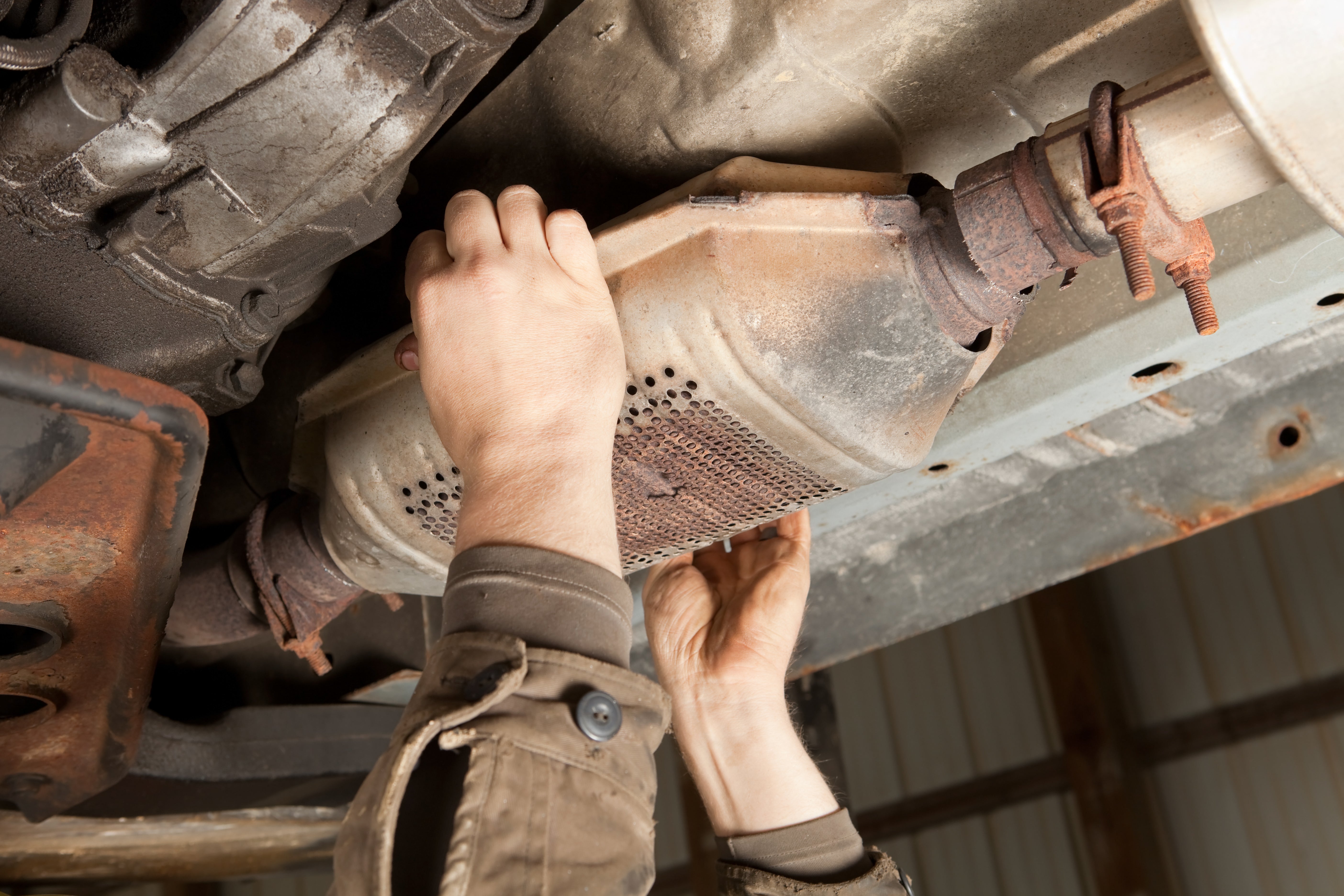Catalytic converter thefts soar
Skyrocketing prices for precious metals in catalytic converters have made them ideal targets for thieves

Your support helps us to tell the story
From reproductive rights to climate change to Big Tech, The Independent is on the ground when the story is developing. Whether it's investigating the financials of Elon Musk's pro-Trump PAC or producing our latest documentary, 'The A Word', which shines a light on the American women fighting for reproductive rights, we know how important it is to parse out the facts from the messaging.
At such a critical moment in US history, we need reporters on the ground. Your donation allows us to keep sending journalists to speak to both sides of the story.
The Independent is trusted by Americans across the entire political spectrum. And unlike many other quality news outlets, we choose not to lock Americans out of our reporting and analysis with paywalls. We believe quality journalism should be available to everyone, paid for by those who can afford it.
Your support makes all the difference.Catalytic converter thefts more than doubled across England, Wales and Northern Ireland between 2019 and 2020.
According to data from Which?, Incidents of catalytic converter theft rose by an average of 104 per cent, with some areas witnessing a rise of more than 400 per cent.
Driving the thefts is the skyrocketing price of the precious metals — metals more valuable than gold — found in catalytic converters which help remove harmful gasses from car exhaust.
The value of these metals has risen dramatically during the pandemic due to a global slump in mining and a surge in demand for private vehicles; currently, a single converter could be worth as much as £400 on the black market.
Certain vehicle models, including older versions of the Toyota Prius and Auris and Honda Jazz hybrids were found to be particularly at risk, due to their higher concentration of precious metals.
London saw the highest number of catalytic converter thefts across the UK, with 13,716 being stolen in 2020, but the problem is much bigger than just the capital.
Merseyside Police witnessed a nearly 300 per cent increase, with 79 converters stolen in 2020 up from 20 in 2019.
Norfolk and Sulfolk Police also witnessed increases of 250 per cent and above, with 77 and 201 catalytic converters reported stolen in 2020, respectively.
The most significant increase was seen in North Wales, however, with thefts growing by 411 per cent, from just 9 in 2019 to 46 in 2020.
These thefts occurred during the pandemic, when the majority of people were at home with their cars, and this year could be on pace to see even more thefts than 2020.
Admiral Insurance group warned that they had witnessed a 57 per cent increase in catalytic converter claims this March compared with March 2020, with the average cost of a claim for a stolen catalytic converter around £1,500.
Police across the country have responded with force, in a national crackdown in April which led to the recovery of more than 1,000 stolen catalytic converters.
The joint operation also recovered nearly 300 other items of stolen property, and resulted in 56 arrests.
A national police crackdown in April led to the recovery of more than 1,000 stolen catalytic converters. The week-long joint operation saw 56 arrests, and the recovery of 1,037 stolen catalytic converters and 297 items of stolen property.
Charlie Doyle, the National Police Chiefs’ Council Lead for Metal Crime, BTP Assistant Chief Constable said: “The positive results from this week are testament to why it’s vital we join forces to share information and specialist knowledge to disrupt those operating in this area of crime.
“By taking a multi-agency approach, we are maximising our ability to identify those who are involved in catalytic converter theft, making it harder for them to sell stolen metal and gain from their criminal activities.”
Jenny Simms, Cheshire Police Assistant Chief Constable added: “Policing and law enforcement agencies will continue to focus on catalytic converter theft and ensure that this low risk/high-reward crime is relentlessly targeted, and offenders are brought to justice.”
Theft of catalytic converters had presented a major challenge for motorists in recent years. Beyond the high costs of repairs and insurance premiums, there has been an increase in vehicles breaking down because of the crime, with AA attending 3,910 breakdowns related to catalytic converter theft in 2020, compared with just 58 related breakdowns in 2017.
Beyond parking in a safe and secure location, like a private garage, there are measures the drivers can take to protect themselves and their vehicles from catalytic converter theft.
Drivers can install a “catlock” — a protective cage around the car’s catalytic converter, for £200. These devices may simply down, rather than deter thieves altogether.
Forensic-marking tools can also be used on a car’s catalytic converter, making it traceable if stolen. While effective for tracking down stolen equipment, to effectively discourage theft this security feature would need to be visibly marked on the car, where would-be thieves could see it.